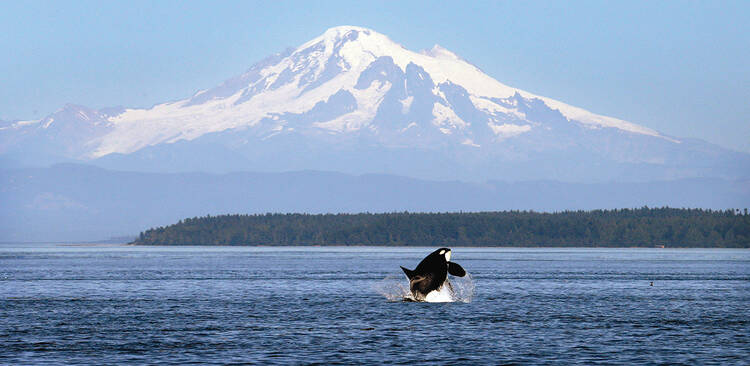The global wildlife population has fallen 58 percent from 1970, according to “The Living Planet” report by the World Wildlife Fund and the Zoological Society of London. Researchers say deforestation, pollution, overfishing and the illegal wildlife trade, together with climate change, “are pushing species populations to the edge.”
“For the first time since the demise of the dinosaurs 65 million years ago, we face a global mass extinction of wildlife,” said Mike Barrett, director of science and policy at W.W.F.-U.K., in a written statement. “We ignore the decline of other species at our peril—for they are the barometer that reveals our impact on the world that sustains us.”
The report, released on Oct. 27, predicts that by 2020, populations of vertebrate species could fall by 67 percent from 1970 levels unless action is taken to reverse the damaging impacts of human activity.
In his encyclical “Laudato Si’,” Pope Francis issued some stern warnings on the care of creation. Did the encyclical have an effect by encouraging lifestyle changes that may help diminish or even reverse the trends depicted in the “Living Planet” report?
Researchers at the Annenberg Public Policy Center reported in a study released on Oct. 24 that a Francis effect through “Laudato Si’” so far remains hard to discern.
“While Pope Francis’ environmental call may have increased some individuals’ concerns about climate change, it backfired with conservative Catholics and non-Catholics, who not only resisted the message but defended their pre-existing beliefs by devaluing the pope’s credibility on climate change,” wrote Nan Li, the lead author of the report.
But Dan Misleh, the executive director of Catholic Climate Covenant, found the report itself and the timing of its release a bit of a head-scratcher. According to Annenberg, the data used in its study was obtained from almost 1,400 20-minute phone interviews conducted one week before the release of “Laudato Si’” on June 18, 2015, and another 1,400 or so interviews two weeks later. Why release that study now when the data is more than a year old, he asks, and why not look at a longer timeframe to determine an impact? Mr. Misleh noted that a Yale study released in November 2015 in fact tracked a significant impact on public attitudes that it attributed to “Laudato Si’.”
He suggested that at the time of Annenberg researchers were making their calls, probably few lay Catholics, much less people from other denominations, had yet found the time to read through the nearly 200-page encyclical. Worse, he adds, the attention of the nation was properly distracted in the timeframe of the phone survey by the horror of the Charleston, S.C., church massacre.
The Annenberg study may have measured personal views and found the pope’s impact wanting, but it is hard to argue that the pope’s encyclical did not have a political impact on the problem. His message on climate change and care of creation was at the forefront of international policy discussions, being included within months at historic speeches before Congress and the United Nations; by December it brought a spiritual ethic on climate change into the Paris climate change negotiations that eventually led to a historic compact to confront the problem.
Mr. Misleh was aware anecdotally of many parish- and community-based initiatives that emerged, and continue to appear, in reaction to “Laudato Si’.”
“There were like 110 statements or press release or articles written by bishops within two weeks after it was released,” Mr. Misleh said. “I don’t think the bishops have ever responded that way to an encyclical letter.”








